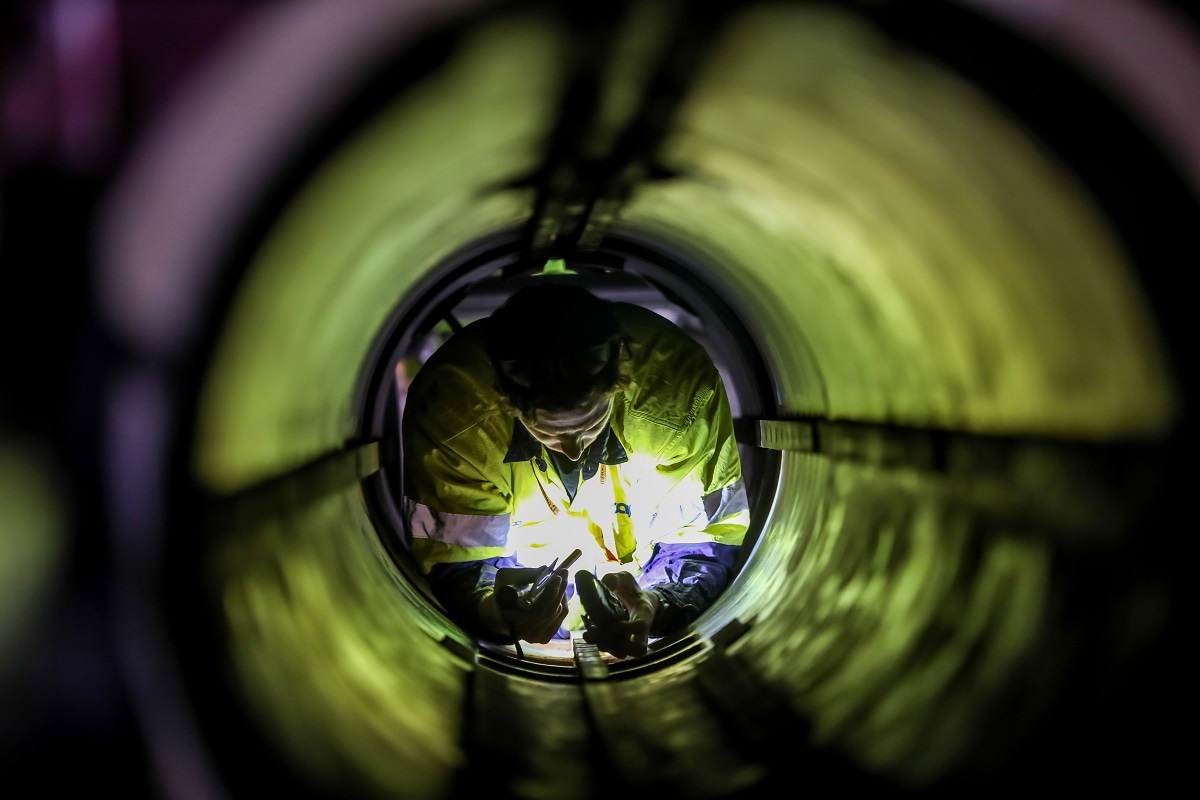Luke Gosling’s recent Lowy Institute Analysis, “Deterring at a distance: The strategic logic of AUKUS”, marks the first time a member of the Australian parliament has made the effort to explain the purpose of AUKUS and the reasoning behind the government’s decision to obtain nuclear-powered submarines at such an enormous cost. This was a task that should have been undertaken by former prime minister Scott Morrision following the AUKUS announcement in 2021 or by the nation’s current leader, Anthony Albanese, at the agreement’s many reaffirmations. Gosling, by writing this paper has provided a national service, even if the sales pitch falls short.
China will not heed the deterrent effect of Australia’s submarines because they will fail the most important requirement of deterrence – credibility.
Gosling describes the nuclear-powered submarines as weapons of deterrence. Yet this is a mistaken presumption. As Gosling concedes, of Australia’s eight submarines only two or three will be available at any one time to deter all aggressors including China, a great power. In reality, China will not heed the deterrent effect of Australia’s submarines because they will fail the most important requirement of deterrence – credibility.
China may be annoyed by Australia’s eventual possession of nuclear-powered submarines, but it is unlikely to fear them or change its plans because of their existence. China has enough depth of infrastructure and military assets that it can devote to hunt down and destroy Australia’s boats, while the damage Australia’s submarines could inflict, even in a best-case scenario, would not be of major significance.

More troubling is Gosling’s suggestion that the AUKUS submarines will also deter a threat that may emerge over the course of the platform’s lifespan. The full contingent of nuclear-powered boats will not be available until the 2040s and they will serve well into the 2050s if not beyond. Gosling is right in that much can change in a couple of decades. At present, however, none of Australia’s regional neighbours pose even a hint of threat, and the fear of Indonesia that once dominated security proceedings has disappeared for good. Moreover, by embracing its neighbours instead of fearing them, the government could use some of the budget for AUKUS to create regional partnerships that would offer greater security to Australia than nuclear-powered submarines can ever achieve. The response to a future threat need not necessarily o be a military one, and justifying the submarine acquisition in such terms risks producing ill will across the neighbourhood.
However, the justification for AUKUS also falls short because neither Gosling, nor the Albanese government, appear to have considered what role the boats would play in mitigating the gravest security threat Australia faces – the consequences of climate change. This would inevitably require the government to redefine what it means by national security in discussions about defence, yet the words “climate change” do not appear in Gosling’s paper.
It is hard to imagine a military platform more superfluous than a nuclear-powered submarine in responding to a warfighting scenario brought about from climate change.
A proper emphasis on climate change in a risk assessment would further undermine the rationale for AUKUS. Climate change and its consequences – unlike China – represent a guaranteed high-risk threat that will not go away.
Yet it is hard to imagine a military platform more superfluous than a nuclear-powered submarine in responding to a warfighting scenario brought about from climate change. The threats in such a circumstance will involve mass migration or regional state collapse, not the deterrence of a distant great power.
The promise of local jobs is also another reason regularly proffered in support of AUKUS. In opening and closing his analysis, Gosling extols the virtues of the AUKUS program’s investment and employment opportunities, which he anticipates will result in 20,000 jobs, presumably new ones. The numbers here deserve careful scrutiny. If the cost of the submarine fleet does come in at the oft-quoted $368 billion, each job would cost taxpayers $18.4 million to create, and even if amortised over the expected build-life of the project, approximately 20 years, the annual cost of each position is about $920,000. This does not sound like value for money. Gosling says, “AUKUS is Australia’s very own moonshot”, which invokes grand endeavours in history, but if the effort fails, the loss is real.
There is no doubt that the region is getting more dangerous. China is a growing power, and it is challenging US supremacy in the Western Pacific. Climate change is real, and as the effects it generates worsen, Australia’s military forces will be hard pressed to avoid becoming involved in regional inter- and intra-state wars or propping up neighbours at risk of internal collapse. But exaggerating the deterrent effect the AUKUS submarines will have on China’s political leaders while failing to address the pressing array of security challenges would leave Australia less well protected than if the government embraced other security options.

